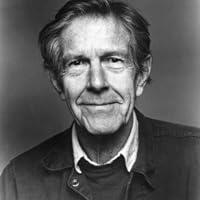
John Cage
关于作者
John Cage was an influential American composer, music theorist, and artist, known for his avant-garde works that challenged traditional notions of music and sound. Born in 1912 in Los Angeles, he became a key figure in the post-war avant-garde movement, exploring concepts of chance and indeterminacy in music. His most famous work, 4'33", is a composition in which the performer does not play their instrument for four minutes and thirty-three seconds, inviting the audience to consider the sounds present in the environment, thus redefining what music could be.
Throughout his career, Cage not only composed music but also engaged in various art forms, including visual art and poetry. His interdisciplinary approach led to collaborations with artists and performers across different mediums, contributing to the development of experimental music and art. Cage’s philosophies on sound and silence have influenced generations of musicians, composers, and artists, making him a pivotal figure in 20th-century art and culture.